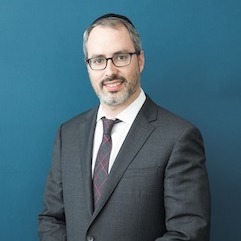What happens if on Yom Tov one mixes up the end of the blessing in Shemoneh Esrei , and in place of saying Mekadeish Hashabbos Veyisrael Vehazmanim, he says Mekadeish Hashabbos, or vice versa?
There is a three way dispute (Beitzah 17) regarding the proper format of Shemoneh Esrei on Yom Tov that falls on Shabbos.
According to Beis Shamai a totally new beracha is added for Yom Tov
According to Beis Hillel Yom Tov is incorporated into the middle part of the regular Shabbos blessing
Rebbi agrees with Beis Hillel, and adds that Yom Tov is also included in the closing blessing – Mekadeish Hashabbos Veyisrael Vehazmanim.
The Halacha is like Rebbi.
Now, if one forgot to mention Shabbos in the ending beracha and concluded ‘Mekadeish Yisrael Vihazmanim’ we run into a dispute of the poskim:
The kenesses hagedola rules that one does not have to repeat Shemoneh Esrei
The Pri Chadash (OC 487) argues and since that if one changes the way that one is supposed to make a beracha (matbeah shetovu chachamim) they do not fulfill their obligation and still have to repeat Shemoneh Esrei. Therefore whether Shabbos was omitted or Yom Tov was omitted in the closing beracha, one has to repeat Shemoneh Esrei.
The Biur Halacha (487) writes as follows: if one doesn’t mention Shabbos in the closing then they have to repeat Shemoneh Esrei, but if one omits Yom Tov they do not. His rationale is that even though the Halacha is like Rebbi that one must incorporate Yom Tov into the closing, Rebbi still agrees with Beis Hillel that the primary beracha (the matbeah) is Mekadeish Hashabbos.
Therefore even if one omits the mention of Yom Tov they haven’t changed the primary blessing and therefore it doesn’t necessitate repeating Shemoneh Esrei. However if they omit Shabbos they have changed the original matbeah of the beracha and must repeat Shemoneh Esrei.
Rav Akiva Eiger, quoted by the Aruch Hashulchan holds that even if one does mention Yom Tov in the blessing but omitted its mention in the middle of the paragraph, he must repeat the Amidah, and that is the ruling of the Aruch Hashulchan himself.
When Rosh Chodesh falls on Shabbos, in place of the regular ‘Tikanta Shabbos’ prayer in the Mussaf Amidah, we say ‘Ata Yitzarta’ which incorporates the prayers of Rosh Chodesh and the special Mussaf sacrifice into the regular Shemoneh Esrei. We then conclude with ‘Mekadeish Hashabbos Veyisrael Veroshei Chodashim.
What if one closed out with the usual Mekadeish Hashabbos? Here Rosh Chodesh differs from Yom Tov. Even according to the Pri Chadash who holds that on Yom Tov if one concludes with Mekadeish Hashabbos they must repeat the Mussaf, on Rosh Chodesh he does not. He extends this as far as Shabbos Chol Hamoed, if one said the usual Shabbos Mussaf he does not repeat the Amidah.
The Pri Chadash explains: On Rosh Chodesh and Chol Hamoed there is no added blessing for the occasion, rather whenever we pray we are supposed to incorporate it into our regular Shemoneh Esrei. If forgotten we still fulfilled our prayer obligation. On Yom Tov we fundamentally change the Amidah to reflect the holiday, and if that change is not incorporated it is considered changing the blessing from the way it was coined and one cannot fulfill their obligation.
The Aruch Hashulchan (425:1) argues with the Pri Chadash, and writes that whereas the main thing is the blessing at the end, if he omits it then he must repeat the Shemoneh Esrei.


Excellent post R’ Haber. It is a pleasure to hear from you again. Indeed this exact situation occured in the renowned Mesivta Tiferes Jersalem this past Shabbos R’C to non other than the renowned “mad dog,” one of the scholars of the Kollel, in which he started the SE with ata yatzarta and concluded with the Shabbos ending. Rabbi Feinstein to the best of my limited knowledge ruled that he need not repeat. i would suggest calling “mad dog” himself to verify this ruling. If you {or Elisha} who mad dog is it is time for you to returnn to the source of knowledge.